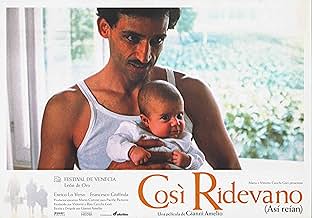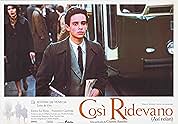Set in late '50's, early '60's. Brave emigrants from impoverished Sicily make their way in industrial Turin. This movie gives you time with a good-hearted Catanese, Giovanni (Enrico Lo Verso), a man who loves desperately, adoringly. The object: his teenaged brother Pietro (Francesco Giuffrida) who is urbane while Giovanni is elemental.
Giovanni's love and personal honor require that he believe no ill about Pietro. The older brother works like an ox to shield his Pietro-on-a-pedestal from the harsh world of manual labor, to give him better lodgings than he himself enjoys and to keep him in school (where Pietro actually is an inveterate hookey-player and a bored, listless daydreamer).
Though Pietro is detached he nevertheless feels guilt for his deceptions and he loves Giovanni for his sacrifice and natural goodness. ("Giovanni is far too good," he says to the whore-waif his older brother has taken under his protection. "He loves everybody").
But while the facile and literate Pietro drifts, the illiterate but intelligent Giovanni makes useful friends, exploits opportunities and rises in life.
Always Pietro remains at the center of Giovanni's heart. And one night Pietro is given the opportunity, finally, to repay Giovanni's selfless devotion.
If there is a "revelation" in this film, it is near the end when we see that the adoring Giovanni has an unexamined, unquestioned faith that his Pietro has the same devotion to him. As a given, he believes that brotherly sacrifice is a two-way street. The immense decision that his younger brother has made against himself and for Giovanni is merely the kind of thing brothers do for eachother. In a horrifying moment Giovanni opens to us: his great love is unselfconsciously, blanketingly possessive, devouring.
Palermo-born Lo Verso is a great actor. That his beautiful, movingly expressive face is not world-famous is a misfortune. But he is only forty now (early thirties in "Cosi Ridivano"). There is time. Jim Smith-----------------------










